

For those who have had the opportunity to experience Aire Ancient Baths at 88 Franklin Street in Tribeca, it feels as if New York City’s cast-iron, late 19th century architecture has found one of its true expressions as a modern bathhouse. For the architectural firm that designed the space, Alonso Balaguer Designs Inc., this is exactly the aim. All of the Aire spas around the world are located in historical buildings and as designer Ignacio Alonso tells us, “We are always trying to exhibit the original building as it was conceived.”
But in the case of 88 Franklin Street, the original building took a bit of time to uncover. 88 Franklin Street was constructed in 1881 by J. Morgan Slade, a promising talent in commercial structures who may have become one of New York City’s notable architects had he not died young at the age of 32. He would not live to see this building completed.
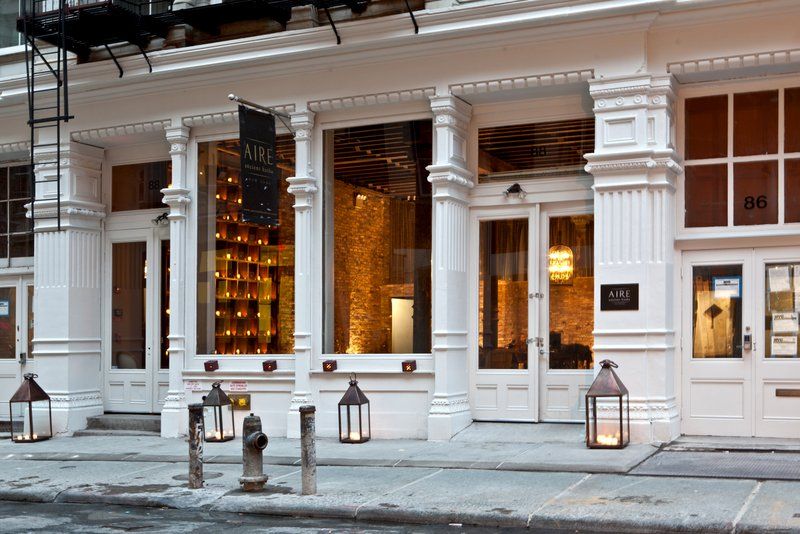
Photo courtesy of Alonso Balaguer Designs Inc.
Exterior landmarking and historical district landmarking designations often have no influence on what state the interior of a building is in, unless a structure gets a second interior landmark designation. 88 Franklin had most recently been renovated in the 1980s as an art gallery, and as Alonso describes, “At the time we took over the space, it was entirely white-boxed without showing any of the original building details and structure: walls, ceilings and columns were covered with plaster and sheet rock.”
But the architectural team understood the client’s requirements – “Design a space that brings a full relaxation experience and at same time brings an understanding of local architecture tradition,” says Alonso.
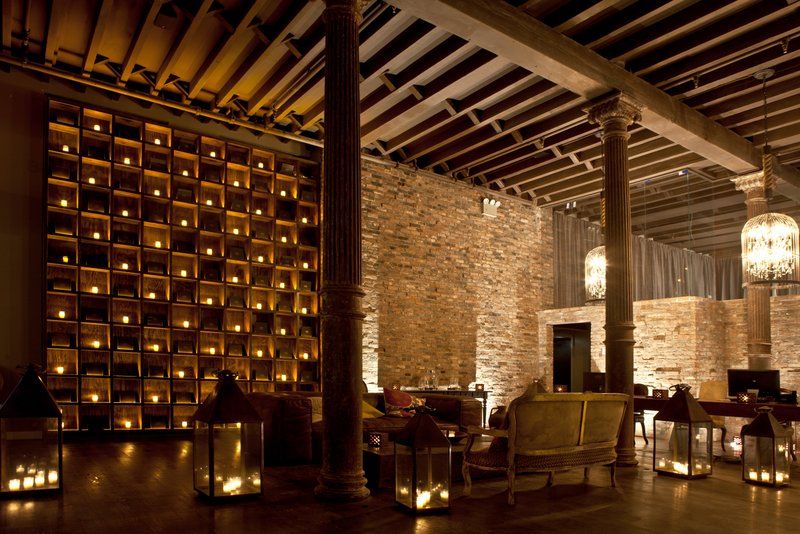
Photo courtesy of Alonso Balaguer Designs Inc.
The first step in the renovation process at 88 Franklin was to expose the original structural elements and brick walls. In the process, Alonso and his team uncovered inscriptions from the Triborough Bridge on some of the wooden joists. The building was previously owned by a warehouse family from Boston, and during the 1920s, 88 Franklin was damaged in a fire. Running out of money for the reconstruction, the owner purchased and reused wooden joists originally used on the scaffolding of the Triborough Bridge. Today, Alonso says, there are a few places in Aire where you can still see those inscriptions but you have to know where to look.
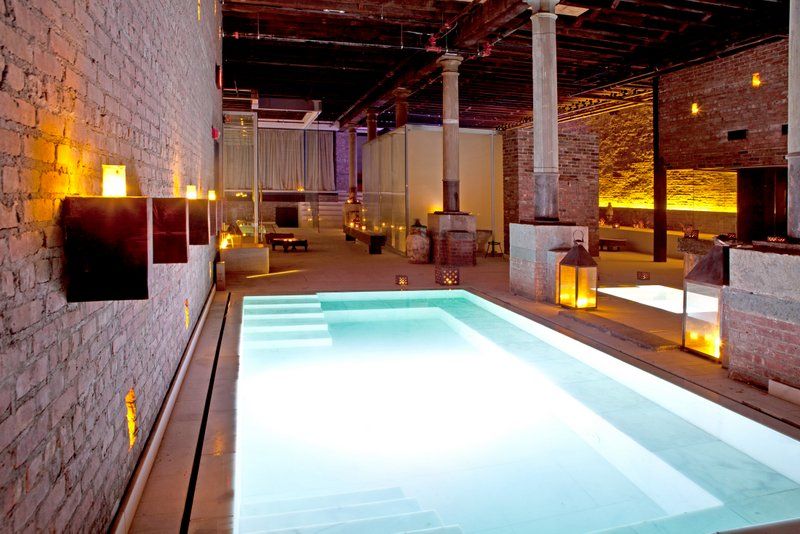
Photo courtesy of Alonso Balaguer Designs Inc.
The wood joists in the floor of the cellar were actually completely removed and reused as millwork throughout the space – the wood flooring in the lobby, shelving, the ceilings, changing room counters. Still, there’s a reason you don’t see many buildings in New York City with all of its wooden structures exposed – its a fire code issue. To allow for this design choice, the team had to design a specific mechanical and sprinkler systems in the building that could cover all the exposed structural elements while hiding all of the ductwork, “allowing the visitor to contemplate a totally unobstructed wood ceiling,” says Alonso. Further excavation of the cellar was done – literally brick by brick – to create the high ceilings of the main bath space and embed the pools. The bricks were then reused as dividing walls and architectural elements.
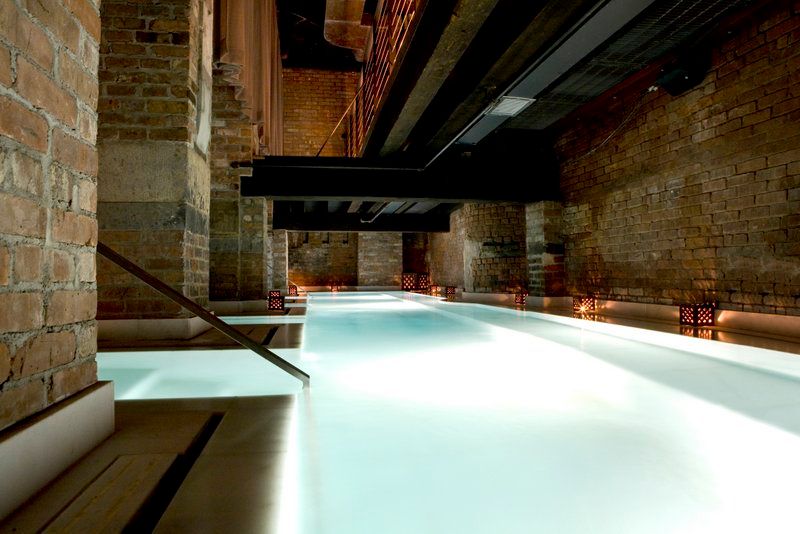
Photo courtesy of Alonso Balaguer Designs Inc.
Within the main space, there is a Flotarium salt bath, propeller jet bath, baths of different temperatures (a temperate 97 degrees and a hot 102 degrees), two cold plunges, a steam room and a relaxation area with a warmed marble slab. Each bath has a unique design, like the temperate bath pictured above, which has nooks to lie down or have a group conversation.
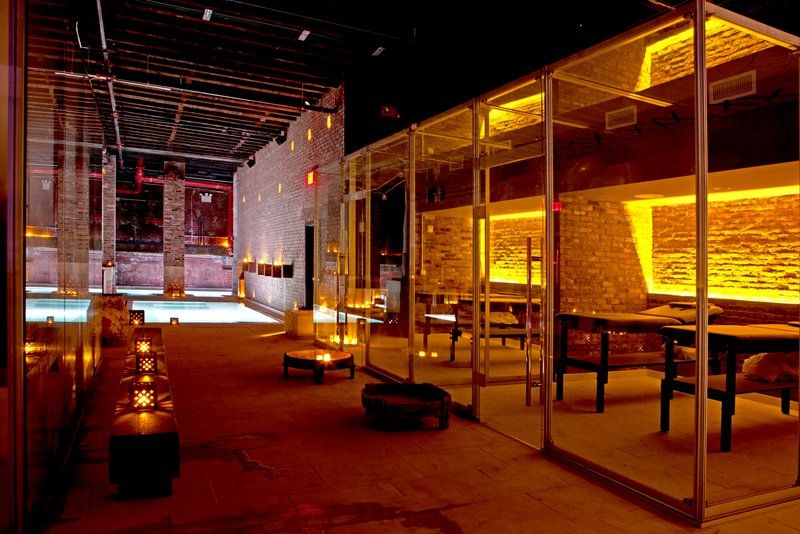
Photo courtesy of Alonso Balaguer Designs Inc.
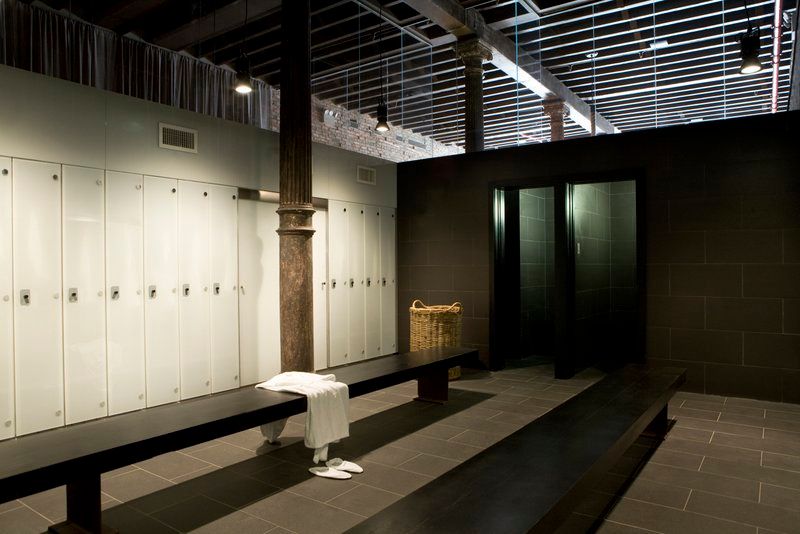
Photo courtesy of Alonso Balaguer Designs Inc.
While the rest of the Aire spas are in Spain, located in unique buildings like a mansion that is situated atop Roman foundations and an underground meat storage in a former market, the company has an active expansion plan in the United States and Europe. A new location in Chicago, the largest of the locations thus far, has an anticipated opening in the spring of 2017 and a location in Paris is also planned within the next year and a half, all in historic and stunning architectural locations.
Next, check out 10 historic luxury buildings in Tribeca and Soho.


